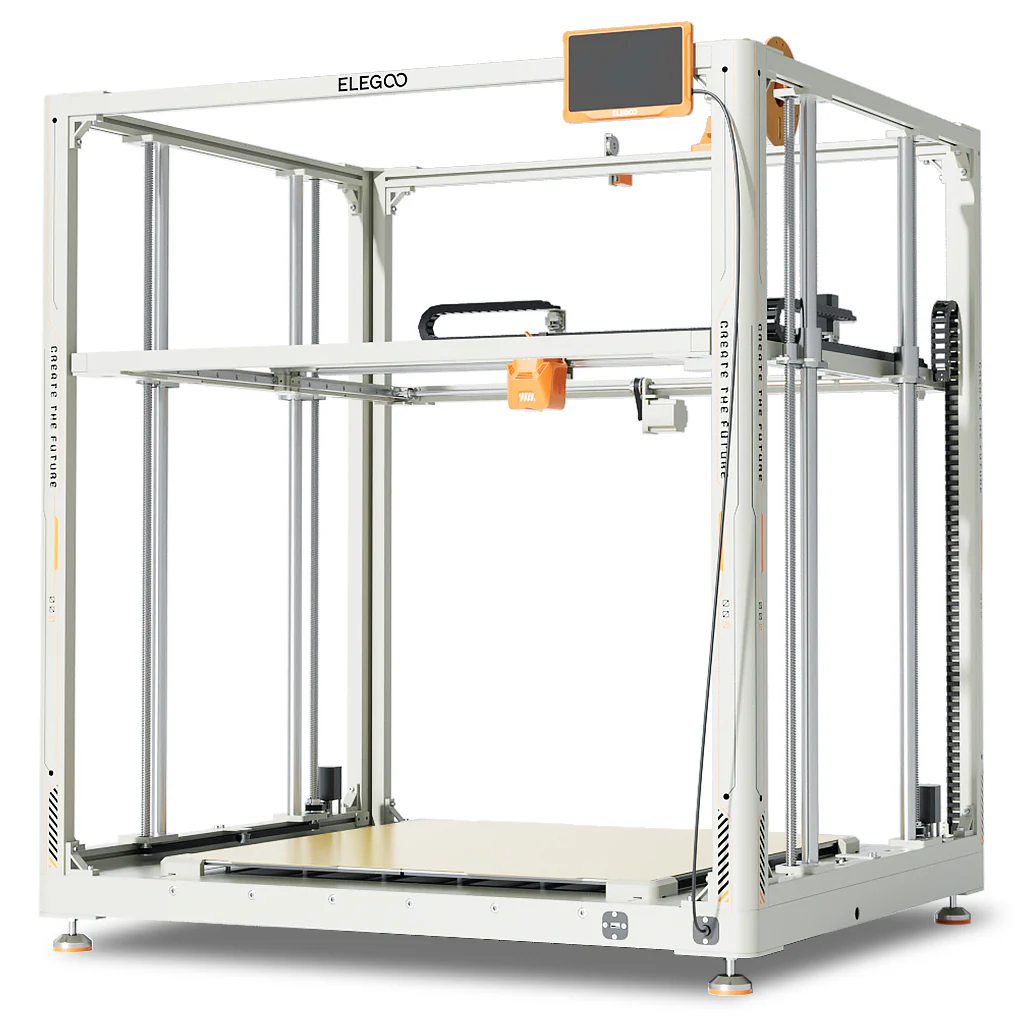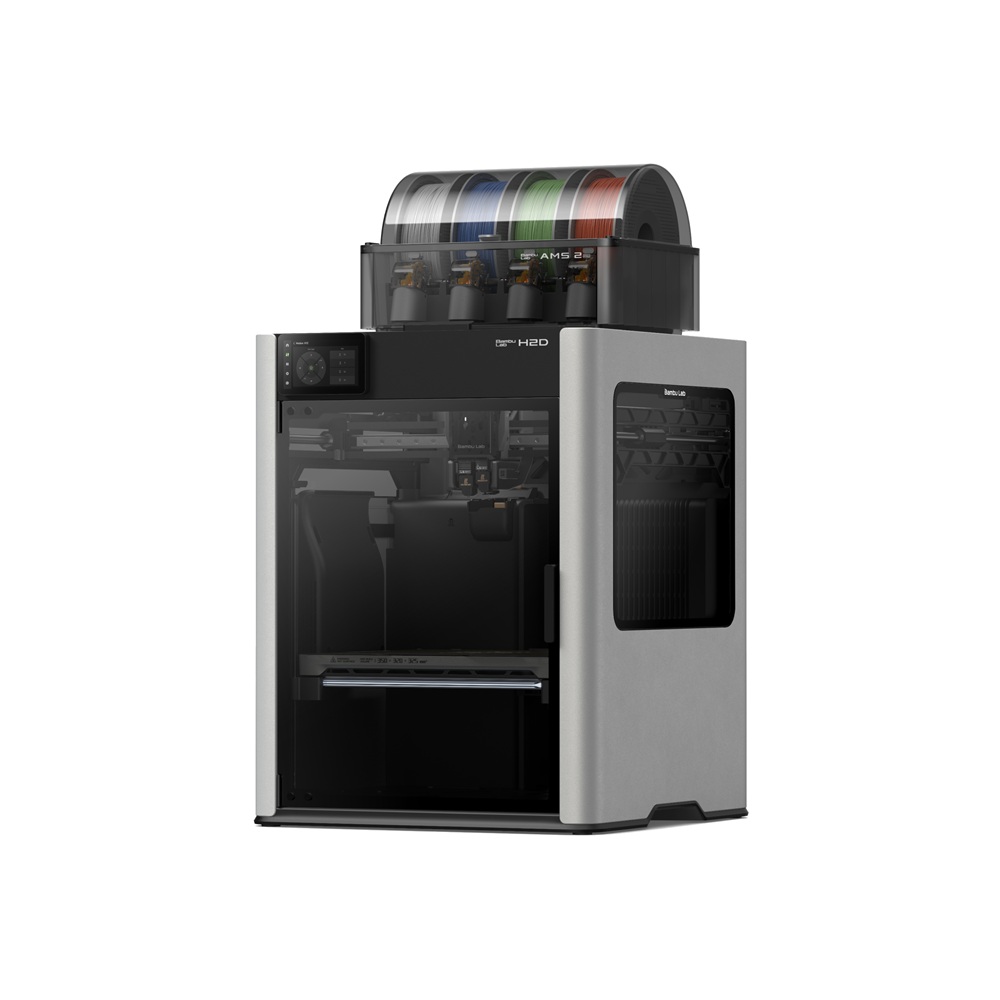Compare Orange Storm Giga vs H2D
Comparison between the best 3D printers
Choose the best 3D printer at the best price. The cheapest 3D printers are here.
Buy a 3D printer here with 3D Fila.
 |
 |
|
| Model | Orange Storm Giga[BUY Orange Storm Giga] |
H2D |
| Printing Material | Filament | Filament |
| Buy Filament for Elegoo Orange Storm Giga | Buy Filament forBambu Lab H2D | |
| Estimated price | $2500,00 | $1899,00 |
| Manufacturer | Elegoo | Bambu Lab |
| Release Year | 2024 | 2025 |
| Print Volume [mm] | 800x800x1000 | 350x320x325 |
| Printer Size [mm] | 1000x1000x1200 | 492x514x626 |
| Weight [kg] | 136 | 42,3 |
| Power Loss Recovery | YES | YES |
| Enclosed printer | NO | YES |
| Bed Leveling | Automatic | Automatic |
| Filament End Sensor | YES | YES |
| Bed type | Heated | Heated |
| Power supply system | Direct Drive | Direct Drive |
| Standard nozzle | 0,4 | 0,4 |
| Maximum Nozzle Temperature [°C] | 300 | 350 |
| Maximum Bed Temperature [°C] | 90 | 120 |
| Maximum printing speed [mm/s] | 300 | 600 |
| Filament holder | YES | YES |
| Camera for supervision | NO | NO |
| Recommended filaments | PLA, ABS< PETG, TPU | PLA, PETG, ABS, ASA, TPU, PVA, Nylon (PA) |
| Recommended slicers | Elegoo Cura | Bambu Studio |
| Maximum Resolution [mm] | 0,1 | 0,01 |
| Processor | ||
| Display | Touchscreen 7'' | Touchscreen 5'' |
| Power Supply | ||
| Connectivity | USB, LAN, Wi-Fi | Wifi, Bambu bus, Cartão SD |
| Operating systems | Windows, Linux e Macbook | Windows, Mac, Linux |
| Date of registration in the system | 2024-10-09 | 2025-03-31 |
| Release date | 2024 | 2025 |
| Extra features | The Elegoo Orange Storm Giga stands out for its huge print volume of 800 x 800 x 1000 mm and its modular heated bed system with four independent zones, ensuring energy efficiency. It supports printing with multiple nozzles, allows print recovery after power failures and uses Klipper firmware, optimizing speed and quality. The portable 7-inch touchscreen and USB, Wi-Fi and LAN connectivity make operation more accessible and versatile. | Bambu Labs H2D combines high-speed 3D printing with a chamber heated up to 65 °C, dual extrusion with automatic nozzle switching, an AMS for filament drying and exchange, and AI sensors that detect failures. It offers optional laser and digital cutting capabilities, features intelligent calibration through computer vision, vibration control, enhanced fire safety, and real-time camera monitoring. |
| Support for multiple colors and materials (AMS and CFS) | NO | YES |
Notes * |
||
| Cost-benefit | 6 / 10 | 7 / 10 |
| Hardware | 3.2 / 10 | 7.2 / 10 |
| Tela | . | . |
| Print volume | 10 / 10 | 4 / 10 |
| Performance | 3 / 10 | 5 / 10 |
| [BUY Orange Storm Giga] |
Conclusion |
| When comparing the Elegoo Orange Storm Giga and the Bambu Lab H2D, it's clear that each printer has its unique strengths, making them suitable for different users and applications. The Elegoo Orange Storm Giga offers a significantly larger print volume, making it ideal for those needing to produce larger objects or multiple models in one go. Its modular heated bed system enhances efficiency, and features like power loss recovery and Klipper firmware optimize printing speed and quality. However, its cost combined with relatively lower performance and hardware ratings may be a consideration for budget-conscious buyers. On the other hand, the Bambu Lab H2D, while having a smaller print volume, excels in performance and hardware capabilities, supporting advanced features like dual extrusion and AI-assisted calibration. Its higher maximum nozzle and bed temperatures allow for processing a wider variety of filament materials, making it a more versatile option for complex projects. Additionally, its enhanced connectivity options and faster printing capabilities make it attractive for those prioritizing speed and efficiency. From a price perspective, the H2D presents a better cost-benefit ratio given its advanced functionality and performance, while the Orange Storm Giga appeals to those who require larger volume capabilities despite its higher price. Ultimately, the choice between the two will depend on the user’s specific needs regarding print volume, material versatility, and budget. |

